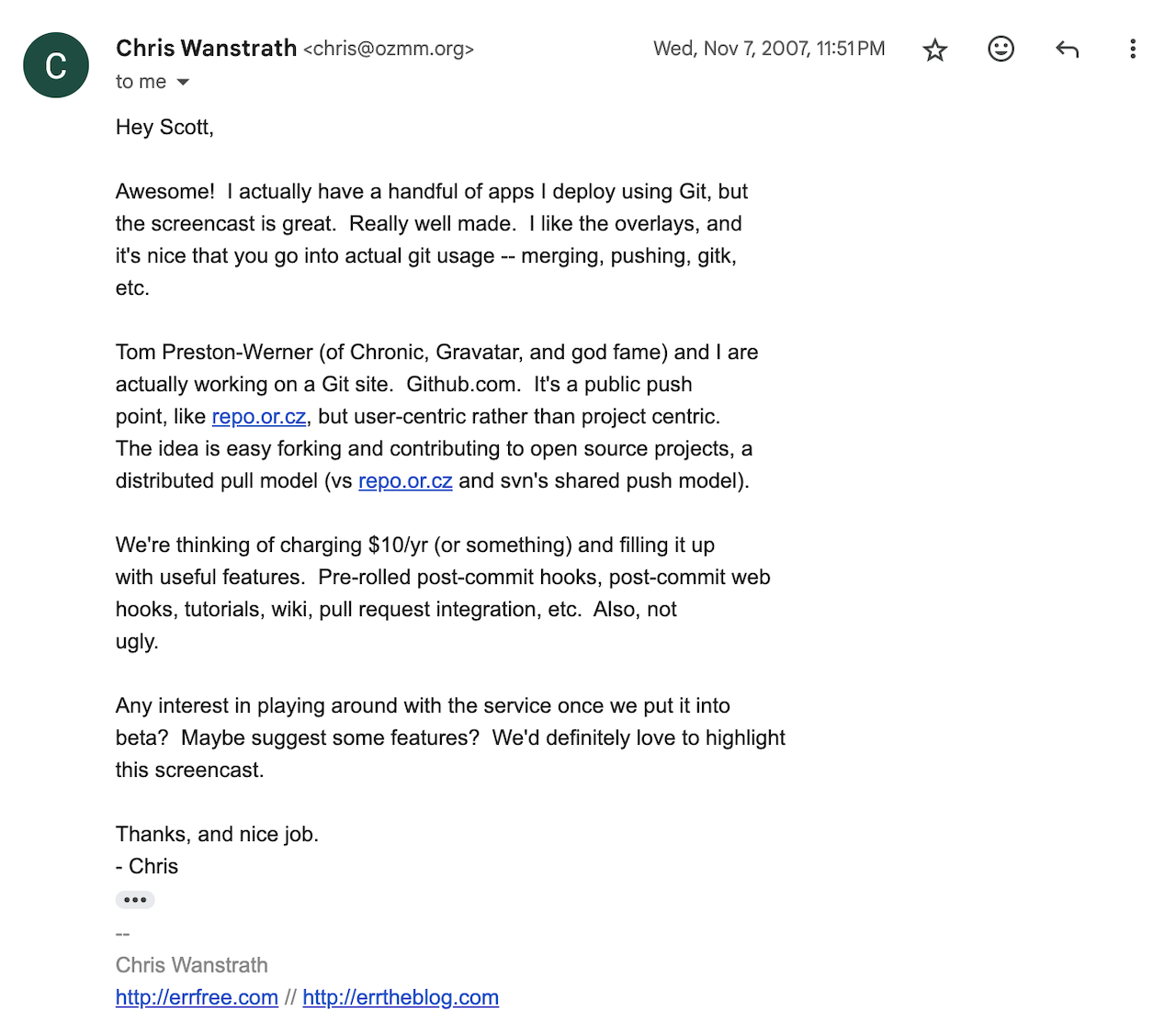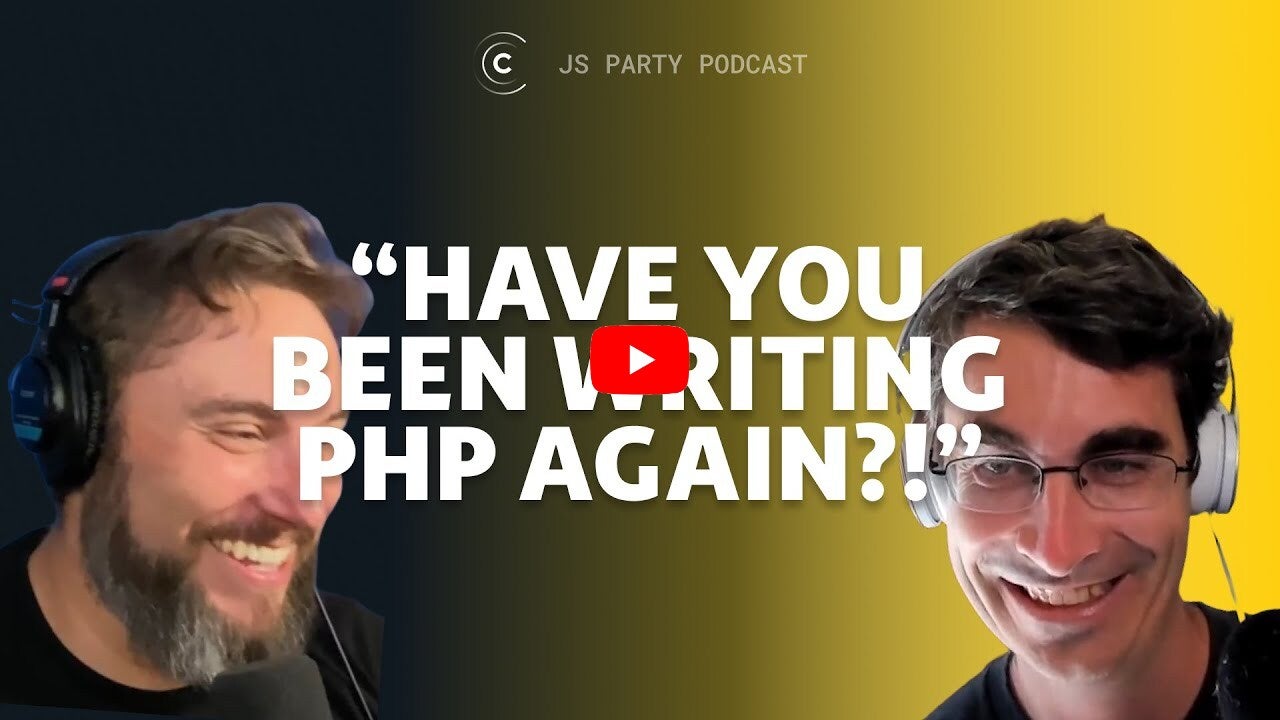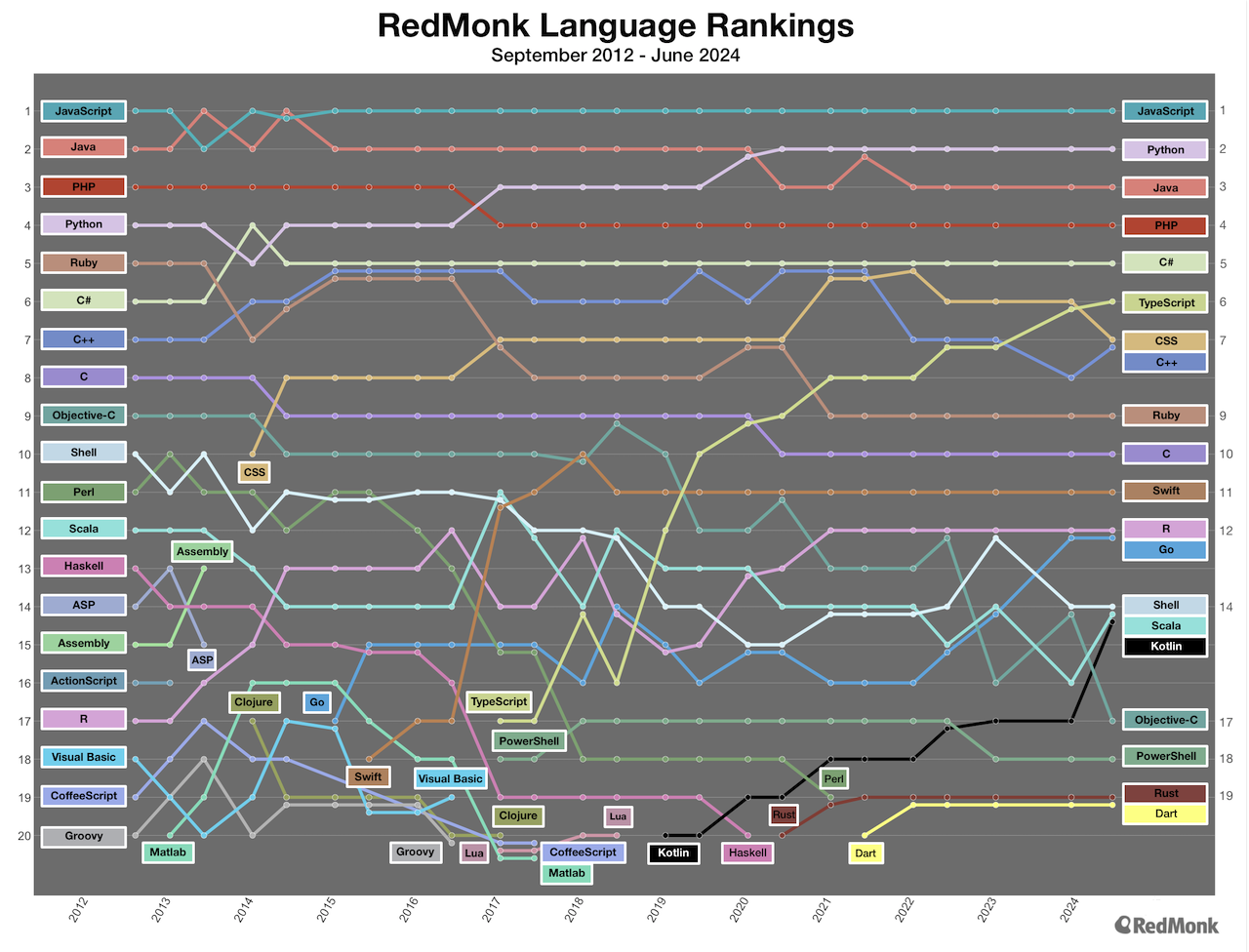Changelog News
Developer news worth your OSS pledge
Jerod here! 👋
A dear friend of mine fell prey to a post-acquisition layoff (alongside 30% of the company) and is looking for work. He’s a super-solid Network Engineer (taught me a bunch) with decades of experience. I’ll take any leads you might have, please hit reply!
Ok, let’s get into this week’s news.
🗯️ Quote of the week
“A blog is a Super Mario mushroom for your career.” – Brad Woods
🎧 Simply the best pods for devs
🪩 Undirected hyper arrows (Chris Shank)
💚 Reverse rug pull, so cool? (Adam & Jerod)
⏰ Home automation with Go (Ricardo Gerardi & Mike Riley)
🚀 Building Rawkode Academy (David Flanagan)
🤖 Cybersecurity in the GenAI age (Dinis Cruz)
🎙️ Building customizable ergonomic keyboards (Erez Zukerman)
🥇 Why GitHub actually won
Scott Chacon writes up his insider’s take on why GitHub became the de facto code collaboration site. Here’s the quick version:
I can boil it down to exactly two reasons that happened to resonate with each other at the perfect frequency.
- GitHub started at the right time
- GitHub had good taste
All four GitHub cofounders had flops both before and after GitHub. Chris and PJ couldn’t quite make FamSpam work before GitHub, Tom and I couldn’t quite make Chatterbug explode after GitHub. I think both of these ventures had good taste and great product, but it wasn’t the right place or time or market or whatever for them to become GitHub level.
One of the problems with success is that so much of it relies on timing… which is one of the big things we cannot control. What we can control, however, is what we decide to build:
We cared about the developer experience and had the creativity to throw away assumptions about what it was supposed to be and build how we wanted to work. Everyone else tried to build what they thought they could sell to advertisers or CTOs.
This strategy is commonplace today, but it was avant garde back in 2008. Definitely read Scott’s entire post of the full history lesson on what developer tooling looked like when GitHub entered the scene. It even includes super cool emails like this one from Chris Wanstrath in 2007:
✊ The Open Source Pledge
Chad Whitacre and our long-time sponsors/friends at Sentry have been leading the way on corporate open source support for awhile, now they’ve created a pledge for other orgs to join them in putting their money where their source is:
Whether you’re a CEO, CFO, CTO, or just a dev, your company surely depends on Open Source software. It’s time to pay the maintainers…
Our companies feast at the Open Source table year after year. Through the Open Source Pledge, we pay the maintainers of the software we consume. This prevents the maintainer burnout that flares up in high-profile security incidents such as XZ, Log4j, and Heartbleed.
Send the link to decision makers in your org and join the growing list of member companies.
⚰️ My dead father is “writing” me notes again
File this one under: “AI… things are getting weird”
Benj Edwards used an image synthesis model to reproduce his late father’s handwriting. He fed it a bunch of journals his dad left behind and now “part of him will live on in a dynamic way that was impossible a decade ago.” I have a feeling this is just the beginning of a trend that will end with people “recreating” their dead loved ones almost entirely. Benj’s thoughts after accomplishing this goal:
The results astounded me and raised deep questions about ethics, the authenticity of media artifacts, and the personal meaning behind handwriting itself.
💰 WarpStream lets you bring your own cloud
Thanks to WarpStream for sponsoring Changelog News
WarpStream’s Bring Your Own Cloud (BYOC) deployment model for Kafka-compat data streaming gives you the best of both worlds between self-hosted & cloud. This model also give you a lot of zeros (that’s a good thing)
Zero disks - WarpStream’s Zero Disk Architecture eliminates local disks entirely and reduces storage costs by more than 24x.
Zero inter-zone networking fees - More than 80% of Kafka costs are not hardware – they’re inter-zone networking fees. Because WarpStream runs on top of S3-compatible object storage & doesn’t manually replicate data between zones, those fees are completely eliminated.
Zero ops auto-scaling - WarpStream replaces stateful Kafka brokers with stateless Agents, so your team can skip the weekly burden of partition rebalancing, scaling headaches, volume management, capacity planning & more.
Here’s a non-zero - WarpStream works in every cloud! They have native support for AWS S3, GCP GCS & Azure Blob Storage. It also works with any cloud or self-hosted solution that has an S3-compatible object storage.
Head to warpstream.com/byoc to learn more and get started for free.
👀 Look out, kids: PHP is the new JavaScript
Dave Kiss explains the “current hype and traction” that PHP is getting (mostly on X & a few YouTube channels):
But there’s been a palpable shift in the air. You can sense it. People seem… excited about PHP.
What happened? Well. Laravel happened (and has been happening).
He goes on to build a trivial Laravel app (with help from Cursor) and sums up the experience:
Am I a convert? A newly-minted PHP Web Artisan? You bet your bottom
$dollarI am. Depending on how critical you are of my AI coding approach, you might argue that I’ve still literally never touched a Laravel application. But I’ll tell ya what: Laravel makes PHP fun again. I am here for it. Maybe you should be, too.
🤑 Laravel raises a $57 million Series A
Speaking of PHP… Taylor Otwell & the Laravel team have decided to take a BIG step with their wildly successful web framework.
Otwell is originally from Arkansas and early in his career worked at a trucking company as a programmer, where he was first exposed to open source. He still lives in Arkansas and, rather than a rip-roaring growth story, Otwell started Laravel as a personal project more than a decade ago, as he sought to build something he wanted.
Taylor didn’t just build something he wanted… he built something that has brought success to (hundreds of?) thousands of developers all around the world. Here’s hoping he can navigate venture-funded open source as well as he’s done so far!
(This news dropped on September 5th, but somehow I missed it until after last week’s issue 🤷♂️)
🎞️ “I’d rather be TypeScripting”
TFW you love TypeScript but PHP is paying the bills…
🤲 Going open source as a VC-backed company
Friend-of-the-log, Lucas da Costa, launched an open source offering alongside their VC-backed company (AGPL, open core) and did a wonderful job of laying out all of their thoughts & reasoning behind the (many) decisions they had to make.
My favorite bit is this one:
Finally, I want to make sure I address some things we will not do.
The first is to change our license.
An up-front, founder guarantee of no rug pull is a good thing. Only thing better might be some way of codifying/formalizing that guarantee so the company can’t change the license…
🛍️ A customizable select element is in the works
Did you know the WHATWG has placed a customizable version of the select element in Stage 2?! This will be huge! The proposal even has strong cross-browser interest and a prototype in Chrome Canary 130.
Selects get complicated pretty quickly, so I’m impressed that they’ve gone so far as providing ways of adding images inside the option elements, animating selection & more. When this ships in enough browsers for broad adoption, we’ll be able to delete soooo many dependencies around the world.
💰 Building AI applications with Postgres
Thanks to Timescale for sponsoring Changelog News
Join our friends over at Timescale for a live webinar on the state of the union for developing AI applications in 2024 and why Postgres can save you time and headaches. This session will also include a Q&A so you can get your questions answered. You’ll learn:
- Why you should choose Postgres as your vector database
- Types of AI apps you can build with Postgres: Search, RAG, Agents, Text to SQL (with live demos)
- Must-know extensions for building AI applications with Postgres: pgvector, pgvectorscale & pgai
If you can’t make it, register here. They’ll send you the recording via email afterward.
📊 RedMonk’s latest language rankings
Despite PHP’s nerdy revival, JavaScript continues to reign supreme. Even more so when you factor in TypeScript at 6th…
📐 Even more good stuff
- 📢 A (more) modern CSS reset
- 📝 PostNL’s Serverless journey
- 📢 11ty is Joining Font Awesome
- 🔨 Hurl 5.0.0, the Parallel Edition
- 📝 Reasons I still love the fish shell
- 📝 The Undeniable Utility Of CSS :has
- 🔨 Orbit: the first CSS radial framework
- 📝 Open Source is not a business model
- 🔨 josephburnett/jd: JSON diff and patch
- 📝 QUIC is not Quick Enough over Fast Internet
- 📝 Passwords have problems, but passkeys have more
- 🔨 Modern commerce with Next.js and Stripe as the backend
- 📢 The Sovereign Tech Fund is now accepting maintainer apps
That’s the news for now, but we have some great episodes coming up this week:
- On Wednesday: Jimmy Miller on the best, worst codebase
- On Friday: Gerhard Lazu is back for Kaizen 16
Have a great week, forward this to a friend who might dig it & I’ll talk to you again real soon. 💚
–Jerod


